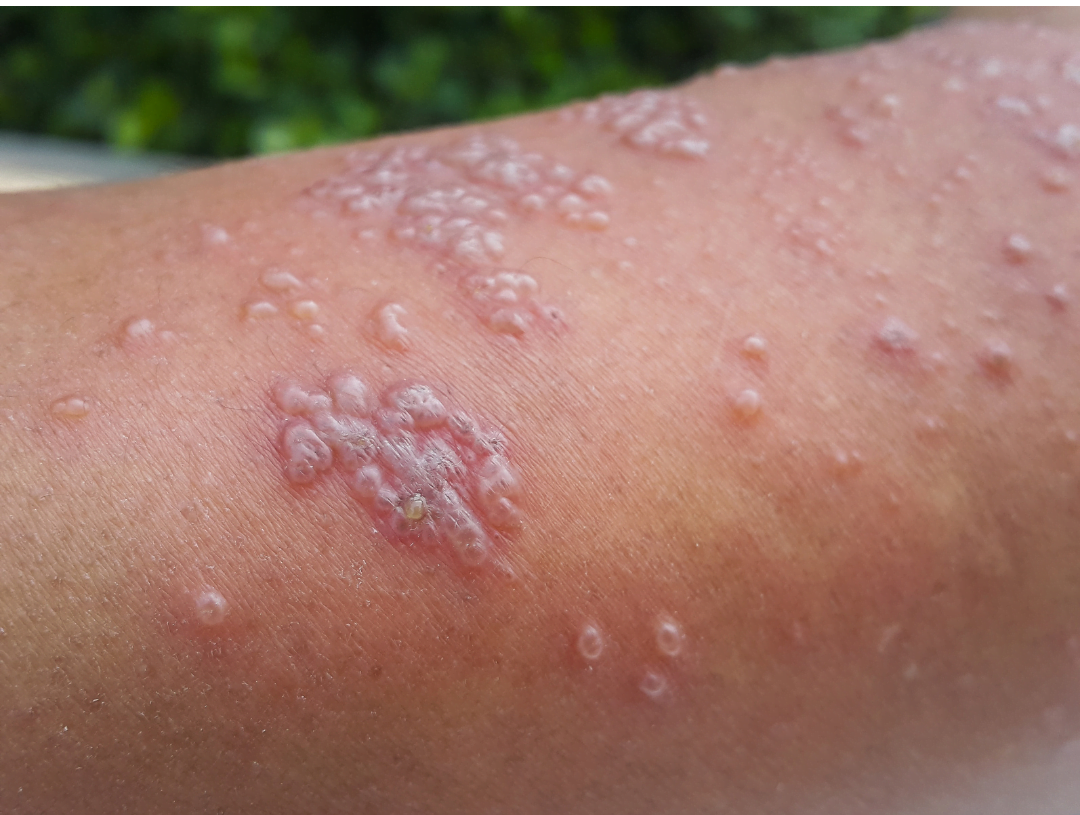A parasitic skin infection is an infection of the skin caused by a parasite.
How do parasitic skin infections spread?
Most parasitic skin infections are spread by direct contact with an infected person or animal. They can also be spread by indirect contacts, such as through contaminated clothing, bedding, or towels. Some parasitic skin infections can also be transmitted through sexual contact.
What are the symptoms of parasitic skin infection?
The symptoms of parasitic skin infections can vary depending on the type of parasite and the location of the infection. However, some common symptoms of parasitic skin infections include:
- Itching, which can range from mild to severe
- Rash or redness of the skin
- Bumps, blisters, or pimples on the skin
- Skin irritation or inflammation
- Flaky or scaly skin
- Dry or cracked skin
- Thickened or discoloured patches of skin
- Sores or wounds on the skin that do not heal properly
- Discharge or drainage from the skin
- Swelling or tenderness of the affected area
In some cases, parasitic skin infections can also cause symptoms such as fever, chills, body aches, headaches, and fatigue. If you are experiencing any of these symptoms, it is important to see a doctor for a proper diagnosis and treatment.
Types and methods of infection
The most common parasitic skin infection is scabies, which is caused by the mite Sarcoptes Scabiei. Other parasitic skin infections include lice, bedbugs, and hookworm.
Scabies is a highly contagious and one of the most common parasitic skin infections caused by the mite Sarcoptes Scabiei. The mite burrows into the skin, causing an intense itching sensation. Scabies is often passed through close physical contact with an infected person. It can also be spread through sharing clothing or bedding with an infected person.
Lice are small, wingless insects that feed on human blood. Three types of lice can infect humans: head lice, body lice, and pubic lice. Lice are usually spread through close contact with an infected person. They can also be spread by sharing clothing or bedding with an infected person.
Bedbugs are small, wingless insects that feed on human blood. They are often found in mattresses, bedding, and furniture. Bedbugs are often spread through close contact with an infected person. They can also be spread by sharing clothing or bedding with an infected person.
Hookworm is a type of parasitic worm that lives in the intestine of humans. It is transmitted through contact with contaminated soil. Hookworm infection can cause anemia, diarrhea, and abdominal pain.
Diagnosis
Diagnosis of a parasitic skin infection is typically made based on the symptoms and physical examination. Blood tests, skin biopsies, and other laboratory tests may also be used to confirm the diagnosis.
Treatment
Treating a parasitic skin infection typically involves a combination of medications and home care measures.
Medications used to treat parasitic skin infections include antiparasitic drugs, such as ivermectin and permethrin. Antibiotics may also be necessary to treat secondary bacterial infections.
How to avoid getting those parasitic infections?
Home care measures to treat a parasitic skin infection include:
- Washing all clothing and bedding in hot water and drying them in a hot setting.
- Vacuuming and dusting the home thoroughly can also help to remove any remaining parasites.
Prevention of a parasitic skin infection includes:
- Good hygiene practices and prompt treatment of any infections.
- Avoiding close contact with people or animals who have a parasitic skin infection can also help to prevent the spread of the infection.
Some skin infections are considered minor ailments, which according to the Alberta College of Pharmacy (ACP), can be advised on through a pharmacist. If you live in Calgary, AB, in one of our neighbouring communities, such as Ogden and Riverbend, you can drop by Ogden Pharmacy at Lynnwood, Ogden, at 7 – 1603 62 Avenue SE, Calgary T2C 2C5.
Alternatively, you can contact us at 587-391-9878.






